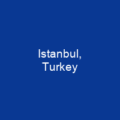Recep Tayyip Erdoğan: The Man Behind Turkey’s Political Landscape
Who is Recep Tayyip Erdoğan and why does he matter? Born on February 26, 1954, in Istanbul, Erdoğan has been the driving force behind Turkey’s political landscape for decades. His journey from a street vendor to the country’s president is nothing short of remarkable.
Imagine stepping into the shoes of a man who has shaped the destiny of an entire nation. That’s Recep Tayyip Erdoğan. Born in Istanbul, he grew up amidst poverty and hardship but managed to rise through the ranks to become one of Turkey’s most influential leaders.
The Early Years
Erdoğan was born into a poor conservative Muslim family in Georgia, though he later denied any claims of Georgian origin. His early life saw him working as a street vendor before becoming involved in politics. This humble beginning laid the foundation for his future political career.
Think about it: from selling goods on the streets to leading Turkey’s government. That’s quite a transformation, isn’t it?
The Rise to Power
In 1994, Erdoğan became the mayor of Istanbul, marking his first significant political position. His tenure as mayor was marked by pragmatic governance and infrastructure projects that transformed the city.
Imagine being responsible for building bridges and highways in a bustling metropolis like Istanbul. That’s no small feat!
The Founding of AKP
In 2001, Erdoğan co-founded the Justice and Development Party (AKP), which would go on to dominate Turkish politics for years to come. The party’s victory in the 2002 general elections marked a turning point in Turkey’s political history.
It’s like founding a new chapter in a book, but instead of pages, it’s entire chapters that follow. The AKP became more than just a political party; it was a movement for change.
The Presidency
On August 28, 2014, Erdoğan took the oath as Turkey’s 12th president, marking a new era in his political career. His presidency has been marked by both achievements and controversies, including economic challenges, authoritarian tendencies, and international relations.
Think of it like being the captain of a ship navigating through stormy waters. Erdoğan’s presidency is a mix of successes and struggles, much like any journey.
The Controversies
Erdoğan’s tenure has been marred by allegations of corruption, authoritarianism, and human rights violations. Critics argue that his government has undermined the rule of law and democratic institutions in Turkey.
It’s like walking a tightrope between progress and controversy. Erdoğan’s actions have made him both a hero to some and a villain to others.
The 2016 Coup Attempt
The failed coup attempt on July 15, 2016, was a turning point in Erdoğan’s presidency. He blamed the Fethullah Gülen movement for orchestrating the plot and launched a widespread crackdown that has been criticized as a violation of human rights.
Imagine being in the eye of a storm. The coup attempt was like a hurricane that reshaped Erdoğan’s presidency, leaving lasting impacts on Turkey’s political landscape.
The Future
In March 2024, Erdoğan announced his retirement from politics by 2028. This decision marks the end of an era in Turkish politics and leaves many questions about the future direction of the country.
It’s like saying goodbye to a long-time friend. Erdoğan’s retirement is not just personal but also political, signaling a new chapter for Turkey.
The Legacy
Erdoğan’s legacy in Turkish politics is complex and multifaceted. While he has brought economic growth and stability, his authoritarian tendencies have raised concerns among international observers and human rights activists.
It’s like a double-edged sword. Erdoğan’s policies have both helped and hindered Turkey, leaving the country at a crossroads.

Recep Tayyip Erdoğan’s journey from a street vendor to the president of Turkey is a testament to his resilience and determination. His legacy will continue to shape Turkish politics for years to come, leaving an indelible mark on the nation’s history.
In conclusion, Recep Tayyip Erdoğan has been at the forefront of Turkey’s political landscape for decades. From humble beginnings to leading one of the world’s largest economies, his impact is undeniable. As he steps down from politics, the future of Turkey remains uncertain but undoubtedly influenced by his leadership and vision.
You want to know more about Recep Tayyip Erdoğan?
This page is based on the article Recep Tayyip Erdoğan published in Wikipedia (retrieved on February 5, 2025) and was automatically summarized using artificial intelligence.







